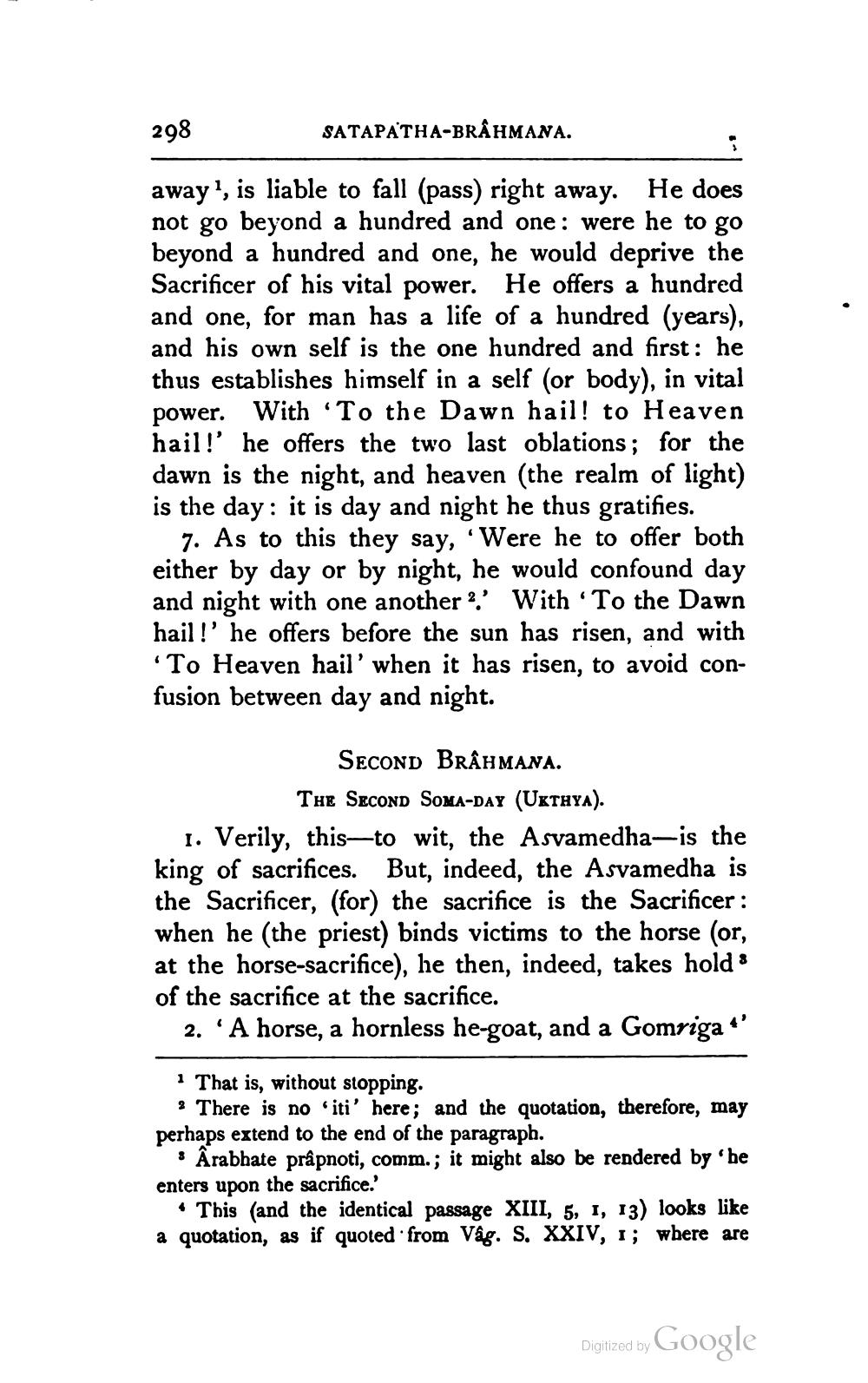________________
298
SATAPATHA-BRAHMANA.
away', is liable to fall (pass) right away. He does not go beyond a hundred and one: were he to go beyond a hundred and one, he would deprive the Sacrificer of his vital power. He offers a hundred and one, for man has a life of a hundred (years), and his own self is the one hundred and first: he thus establishes himself in a self (or body), in vital power. With 'To the Dawn hail! to Heaven hail!' he offers the two last oblations; for the dawn is the night, and heaven (the realm of light) is the day it is day and night he thus gratifies.
7. As to this they say, 'Were he to offer both either by day or by night, he would confound day and night with one another 2. With 'To the Dawn hail!' he offers before the sun has risen, and with 'To Heaven hail' when it has risen, to avoid confusion between day and night.
SECOND BRAHMANA.
THE SECOND SOMA-DAY (UKTHYA).
1. Verily, this-to wit, the Asvamedha-is the king of sacrifices. But, indeed, the Asvamedha is the Sacrificer, (for) the sacrifice is the Sacrificer: when he (the priest) binds victims to the horse (or, at the horse-sacrifice), he then, indeed, takes hold $ of the sacrifice at the sacrifice.
2. 'A horse, a hornless he-goat, and a Gomriga
4
1 That is, without stopping.
2 There is no 'iti' here; and the quotation, therefore, may perhaps extend to the end of the paragraph.
Arabhate prâpnoti, comm.; it might also be rendered by 'he enters upon the sacrifice.'
This (and the identical passage XIII, 5, 1, 13) looks like a quotation, as if quoted from Vâg. S. XXIV, 1; where are
Digitized by
Google




